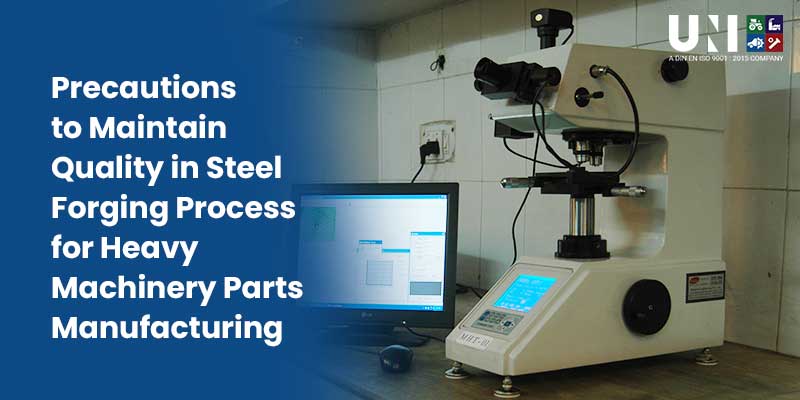Introduction
Selection of Raw Materials
Achieving superior quality in forged steel parts relies heavily on the selection of raw materials. Carefully chosen high-quality steel grades, considering strength, toughness, and corrosion resistance, are crucial. Implementing quality control measures, including material inspection and testing, ensures raw material integrity.
Heat Treatment Techniques
Heat treatment significantly enhances the mechanical properties of forged steel parts. Techniques like quenching, tempering, and annealing are employed. Strict quality checks during heat treatment maintain precise temperature and time parameters, ensuring material consistency.
Precision Forging Process
Precision forging techniques shape raw materials into intricate parts, requiring precise temperature, pressure, and forming conditions. Adhering to specific parameters minimizes defect risks. Quality control measures, such as real-time monitoring, ensure compliance with standards.
Inspection and Testing
Thorough inspection and testing occur at various stages. Non-destructive testing methods, like ultrasonic and magnetic particle inspection, detect defects. Rigorous checks ensure compliance with specifications and standards.
Quality Control Measures
Robust quality control measures maintain the highest standards. Skilled personnel conduct detailed inspections and enforce adherence to standards. Continuous improvement initiatives enhance quality.
Preventive Maintenance and Post-Forging Procedures
Proper handling, storage, and preservation are vital to maintain quality. Post-forging procedures, including shot blasting and machining, ensure specific requirements are met. Final inspections verify dimensional accuracy and mechanical properties.
Case Studies and Examples
Successful case studies highlight the importance of quality control measures. Adherence to standards and continuous improvement results in high-quality parts.
Conclusion
Maintaining quality in steel forging ensures reliable, durable, and high-performing parts. Stringent precautions, thorough inspections, and continuous improvement are essential to meet customer requirements and elevate industry standards.


